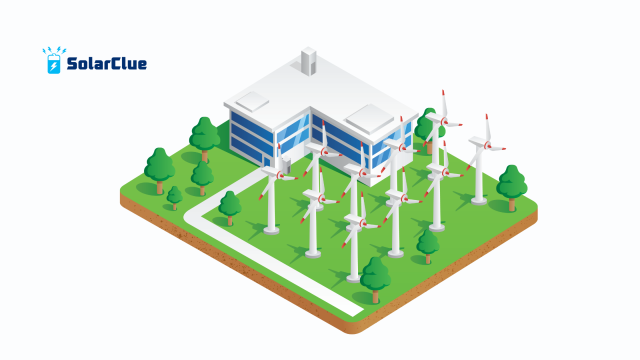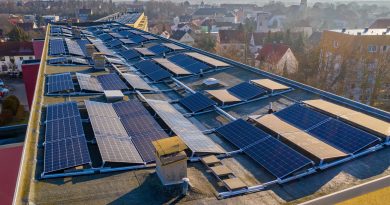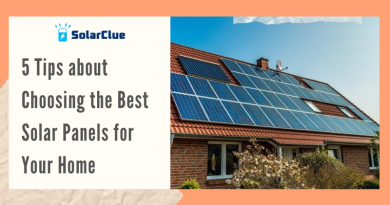Is Solar Energy Good for Farming? Benefits & Guide
The agricultural sector is evolving, and sustainability is taking center stage. Among the many green energy options, Solar Energy stands out as a transformative force. But is solar energy good for farming? The answer is a resounding yes! With ever-increasing Solar Panel Efficiency, lower costs, and environmental advantages, farming and solar power are now a perfect match. This blog explores the connection between solar panels and farming, explaining their benefits, challenges, and everything in between.
Table of Contents
- 1 Why Solar Energy Is Ideal for Farming
- 2 How Solar Panels Help Agriculture
- 3 Financial Benefits of Solar Panels on Farms
- 4 Environmental and Ecological Benefits
- 5 Understanding Solar Panel Efficiency in Farming
- 6 Solar Power System Options for Farms
- 7 Long-Term Impact on Agricultural Productivity
- 8 Challenges and Solutions in Solar Farming
- 9 How to Choose the Best Solar Panel for Farming
- 10 Success Stories of Solar-Powered Farms
- 11 The Future of Farming with Solar Energy
- 12 Final Thoughts: Solar Energy Is Farming’s Bright Future
- 13 FAQs
Why Solar Energy Is Ideal for Farming
Abundant Land Resources
Farms often possess vast stretches of land and open rooftops—ideal for installing solar panels. Whether it’s ground-mounted systems or rooftop arrays, agricultural properties offer excellent opportunities to generate solar power efficiently.
Reduces Operational Costs
Electricity is one of the major ongoing costs in farming. Water pumps, lighting, refrigeration, and processing equipment can drain your resources. By switching to solar power, farmers can dramatically cut their electricity bills and reinvest savings into operations.
Boosts Sustainability
Sustainability is no longer optional. By using solar energy, farms can reduce their carbon footprint, improve soil health (less diesel runoff), and align with eco-friendly practices that consumers increasingly value.
How Solar Panels Help Agriculture
Powering Irrigation Systems
Solar pumps for irrigation are a game-changer. Farmers in remote areas without grid access can now install solar-driven water pumps, providing consistent water supply to crops.
Supporting Cold Storage Facilities
Perishable produce needs constant cooling. Solar panel for home or farm setups can power cold storage units, especially during sunny hours, reducing reliance on fossil fuels.
Driving Mechanized Farm Tools
Modern tools and farm machinery require a lot of energy. With solar panels, farmers can now operate electric tractors, automated feeders, and lighting systems with renewable energy.
Financial Benefits of Solar Panels on Farms
Government Subsidies and Incentives
Many governments, including India, offer lucrative subsidies on the best solar panel installations for agriculture. This dramatically reduces the upfront cost of adopting solar power systems.
ROI and Payback Period
Although initial costs might seem high, the return on investment is excellent. Most systems pay for themselves in 5-7 years while continuing to generate free power for 25+ years.
Net Metering Advantage
Through net metering, farmers can sell excess power back to the grid. This passive income further offsets expenses and encourages energy efficiency.
Environmental and Ecological Benefits
Reduced Carbon Emissions
Switching to solar power drastically cuts down the use of diesel and grid electricity, thereby reducing emissions and improving air quality around farms.
Promotes Eco-Farming Practices
Solar panel benefits go beyond energy. They encourage organic and low-impact farming methods by reducing pollution and chemical runoff.
Improves Land Productivity
Agri-voltaic systems (using land for both crops and solar panels) allow farmers to dual-purpose their land. Partial shading from panels can even improve crop yield in hot climates.
Understanding Solar Panel Efficiency in Farming
What Is Solar Panel Efficiency?
Solar Panel Efficiency refers to the amount of sunlight that a panel can convert into usable electricity. Higher efficiency means more power in less space—vital for maximizing farm operations.
Choosing the Right Panel
Always choose the best solar panel suited for your farm’s energy needs. Monocrystalline panels, known for their high efficiency, are ideal for space-limited setups.
Maintenance and Durability
Modern solar panels are built to last. With minimal maintenance (mostly cleaning), they can withstand harsh weather, making them ideal for rural agricultural use.
Solar Power System Options for Farms
Off-Grid vs. On-Grid
Off-grid systems are great for remote farms, while grid-tied systems with backup storage work well for larger, more commercial farms.
Hybrid Systems
Hybrid systems combine the best of both worlds. They allow farmers to store energy and stay connected to the grid, ensuring consistent power during cloudy days or nights.
Scalable Systems
Start small with a few panels and expand as your energy needs grow. Solar systems are flexible and can be scaled to meet both current and future energy demands.
Long-Term Impact on Agricultural Productivity
Stable Energy Supply
Reliable electricity means uninterrupted farming operations. Whether it’s a dry season or a power cut, solar power ensures your farm keeps running smoothly.
Enhances Yield
More efficient irrigation, precise lighting, and consistent refrigeration contribute to healthier crops and better productivity.
Cuts Down Production Delays
Delays due to electricity shortages are common in rural areas. Solar panels help bypass this issue, keeping production schedules intact.
Challenges and Solutions in Solar Farming

High Initial Investment
Although upfront costs are high, subsidies and long-term ROI make solar panel for home and farms worth the investment.
Weather Dependency
Solar systems depend on sunlight. However, battery storage and hybrid systems can address energy gaps during rainy or cloudy days.
Maintenance Concerns
With no moving parts, modern solar panels require minimal upkeep. Periodic cleaning and an annual checkup are usually enough.
How to Choose the Best Solar Panel for Farming
Assess Your Energy Needs
Calculate your total energy requirement across irrigation, cooling, lighting, and tools before selecting a solar power system.
Consider Installation Area
If you have limited space, go for high-efficiency panels. For larger areas, you can choose a mix of medium-efficiency but cost-effective panels.
Check Warranties and Support
Always opt for the best solar panel brands that offer warranties, excellent customer service, and a strong local presence.
Success Stories of Solar-Powered Farms
Small Farm in Karnataka
A family-owned organic farm reduced its electricity bill by 80% after installing a 10kW solar power system, reinvesting the savings into expansion.
Dairy Farm in Punjab
A dairy farmer powers milk chillers and water pumps using solar energy. He now saves over ₹60,000 annually on electricity.
Vineyard in Maharashtra
By adopting solar panels, the vineyard ensures reliable power for irrigation and processing, boosting grape yield by 15%.
The Future of Farming with Solar Energy
Smart Farming Technologies
Combining solar power with IoT and AI tools is ushering in a new era of precision farming—improving productivity and reducing waste.
Integration with Water Harvesting
Solar installations can be combined with rainwater harvesting for a fully self-sufficient energy-water system.
Expanding Rural Electrification
Solar panel benefits go beyond the farm gate—they help bring electricity to rural communities, supporting education, health, and livelihoods.
Final Thoughts: Solar Energy Is Farming’s Bright Future
So, is solar energy good for farming? Absolutely. From reducing costs to improving productivity and promoting sustainability, the benefits are clear and measurable. Whether you’re a small farmer or manage a large estate, solar energy provides a reliable, eco-friendly, and economically viable solution.
Visit SolarClue.com to explore the best solar panel for home and farm solutions. And don’t miss our in-depth solar insights at blog.solarclue.com to stay informed and inspired.
FAQs
1. What are the main benefits of solar panels in farming?
They reduce electricity bills, support irrigation, refrigeration, and machinery, and improve sustainability.
2. Are solar panels durable enough for farm use?
Yes, most solar panels are weather-resistant and require minimal maintenance, making them ideal for rural setups.
3. Is solar energy reliable for farm operations during the monsoon?
With hybrid systems and batteries, farms can still rely on solar during cloudy or rainy seasons.
4. How long does it take to recover the cost of a solar installation on a farm?
Most farmers see a return on investment within 5 to 7 years, depending on system size and subsidies.
5. Can solar panels power an entire farm?
Yes, with proper planning and scalable systems, solar panels can meet all the energy needs of a farm.
To learn more, visit our solar solutions and discover how your farm can thrive at SolarClue.com.




